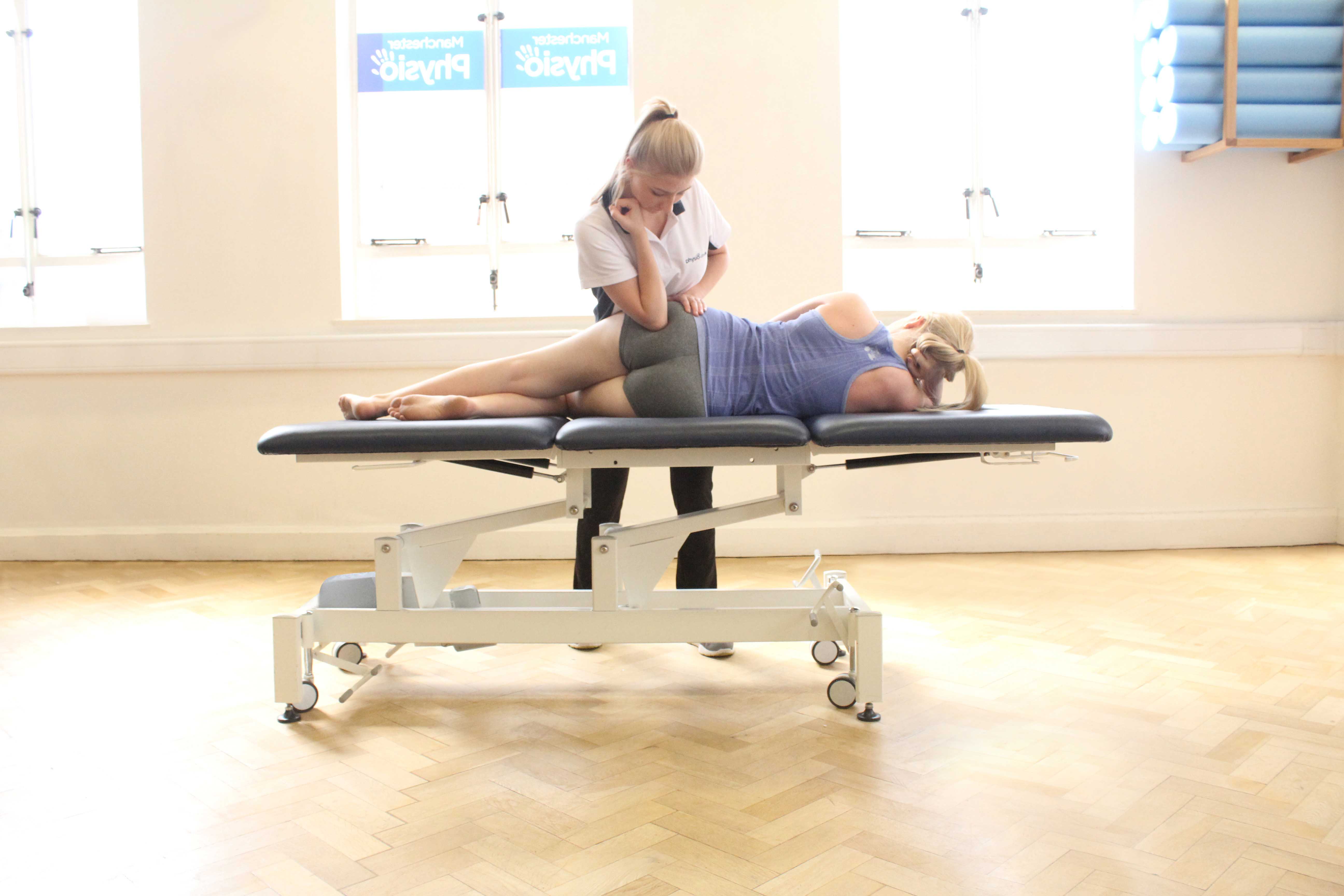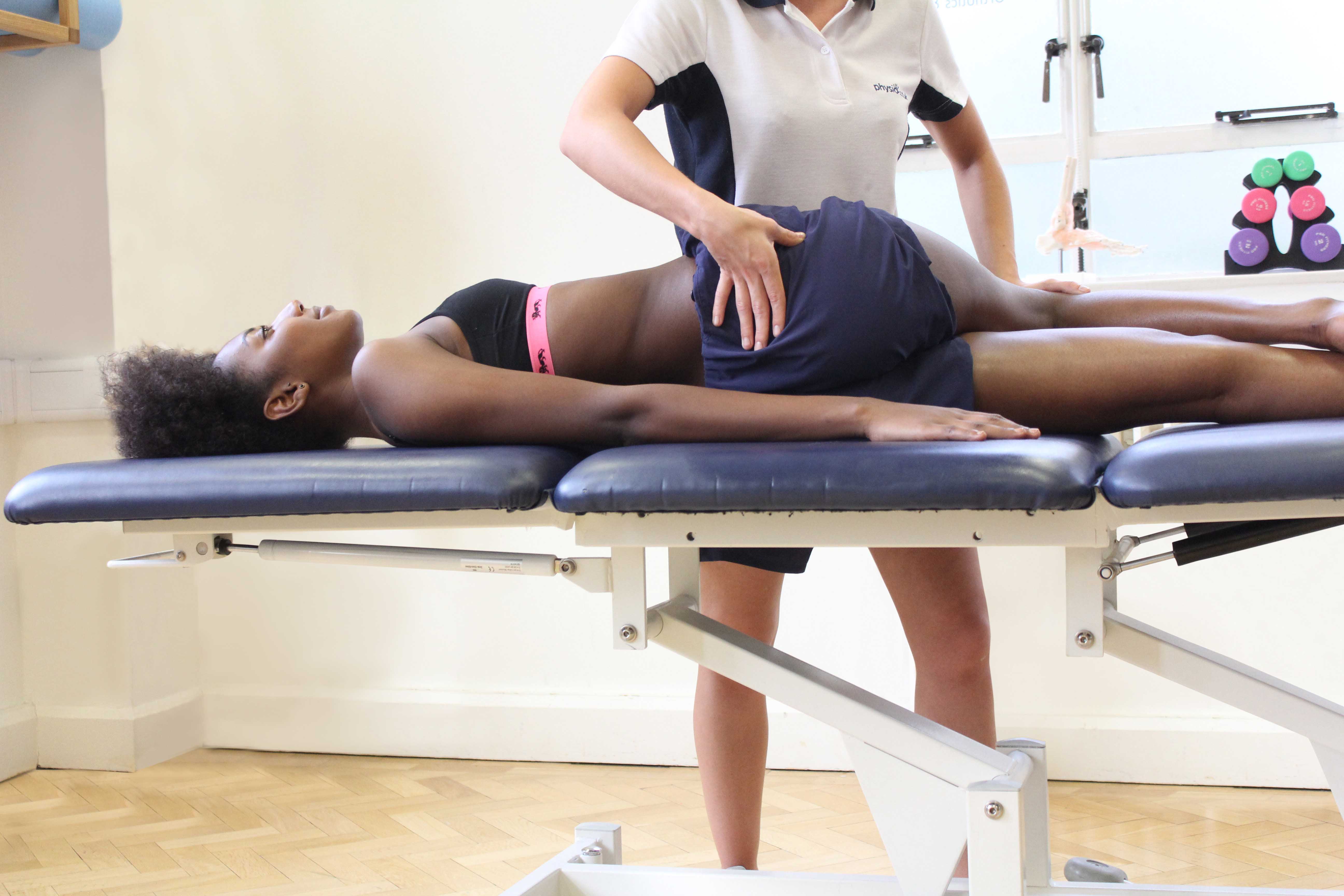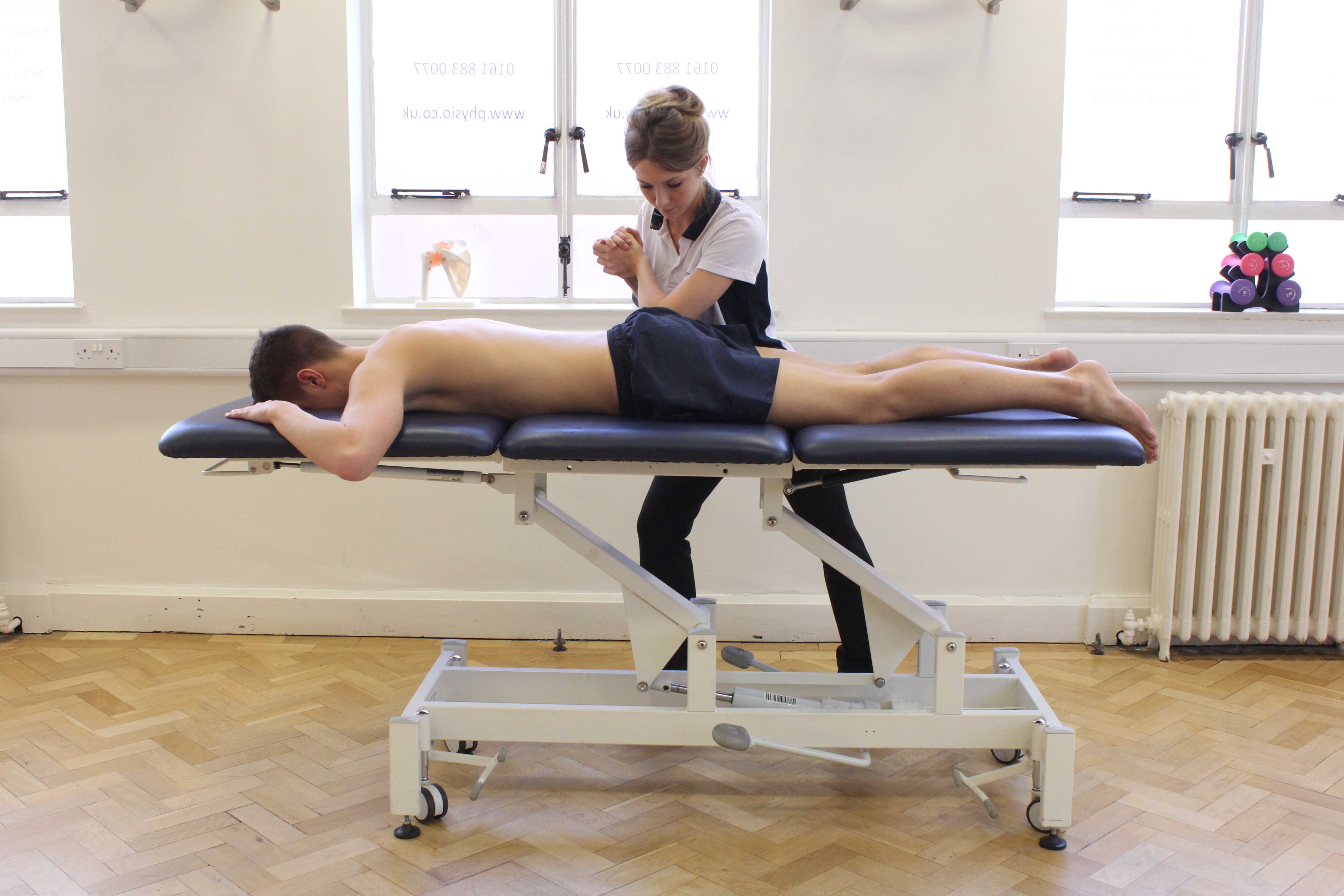Ischiogluteal Bursa Excision
Your ischiogluteal bursa, also known as your gluteal or ischial bursa, lies between your gluteus maximus (buttock muscle) and your ischial tuberosity (sitting bone). Your ischium is located on the posterior aspect (rear)of your pelvis with the ischial tuberosity the bony prominence that you sit down on. Over this bony prominence, is your gluteus maximus which allows you to extend at your hip. In between these is a bursa (fluid filled sac) which acts as a protective buffer during impact. This bursa also reduces friction during movement which in turn helps facilitate fluent movement during muscle contraction.
 Above: Deep tissue massage of the gluteus muscle by experienced therapist
Above: Deep tissue massage of the gluteus muscle by experienced therapistThe ischiogluteal bursa can become inflamed (ischiogluteal bursitis) due to repetitive friction, prolonged sitting and trauma or from an underlying rheumatic condition causing pain and limited movement. Chronic ischiogluteal bursitis can develop due to repeated inflammations and the bursa can also become infected. The ischiogluteal bursa lies very close to your sciatic nerve and so when this bursa becomes inflamed it can mimic the symptoms of sciatica. When conservative treatment has failed to treat chronic ischiogluteal bursitis then a surgical excision (removal) can be performed to remove the source of your pain.
 Above: Passive stretch of the hip and gluteus muscle
Above: Passive stretch of the hip and gluteus muscleSymptoms following Ischiogluteal Bursa Excision
Following ischiogluteal bursa excision you will be given crutches and instructed to non-weight bear for approximately 2 days to provide protection and aid recovery. It is common for you to experience symptoms as a result of the operation which include:
- Pain
- Swelling
- Bruising
 Above: Deep tissue massage of the gluteus muscle by specialist MSK therapist
Above: Deep tissue massage of the gluteus muscle by specialist MSK therapistPhysiotherapy following Ischiogluteal Bursa Excision
Following ischiogluteal bursa excision, Physio.co.uk will develop a rehabilitation programme specific to your needs and focussed on returning you to your previous level of function. Your original injury can be caused by a range of factors but will result in muscle imbalances, muscle shortening, joint restriction, biomechanical defects and postural abnormalities. Physio.co.uk will target these areas, helping to return these back to normal allowing you to return to painless, normal function. Physio.co.uk will compile a thorough assessment indicating where treatment focus will be and then develop a structured rehab programme to address these problems. Initial treatment will be on acute management of post-operative symptoms and will progress onto managing musculoskeletal problems and muscular retraining. Treatment will consist of:
- Cryotherapy
- Pain management
- Wound management
- Heat therapy
- Gait analysis and training
- Postural retraining
- Core stability exercises
- Soft tissue release
- Trigger point therapy
- Trunk and pelvic stability exercises
- Electrotherapy
- Hamstring lengthening
- Hamstring strengthening
- PNF stretching
- Acupuncture
- Long term home exercise programme
Summary
Ischiogluteal bursa excision is a surgical procedure whereby the bursa that lies in between your buttock muscle and your sitting bone is removed. Bursitis can develop due to repetitive trauma and when conservative treatment is unsuccessful, the bursa is completely removed. Physiotherapy is vital in helping to reduce pain, restore normal function and the prevention of secondary problems. Physio.co.uk will design a comprehensive rehabilitation programme focussing on these areas to ensure full recovery and the prevention of any re-occurrence. Call Physio.co.uk now on 0330 088 7800 for more information or to book an appointment please contact us.

 0330 088 7800
0330 088 7800


































